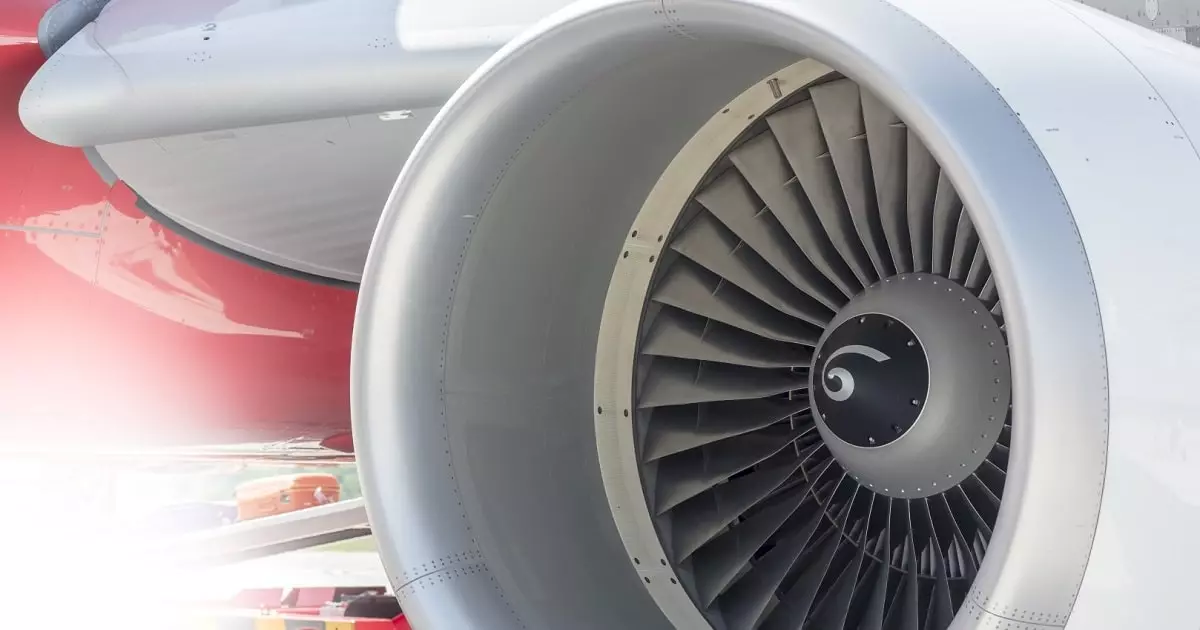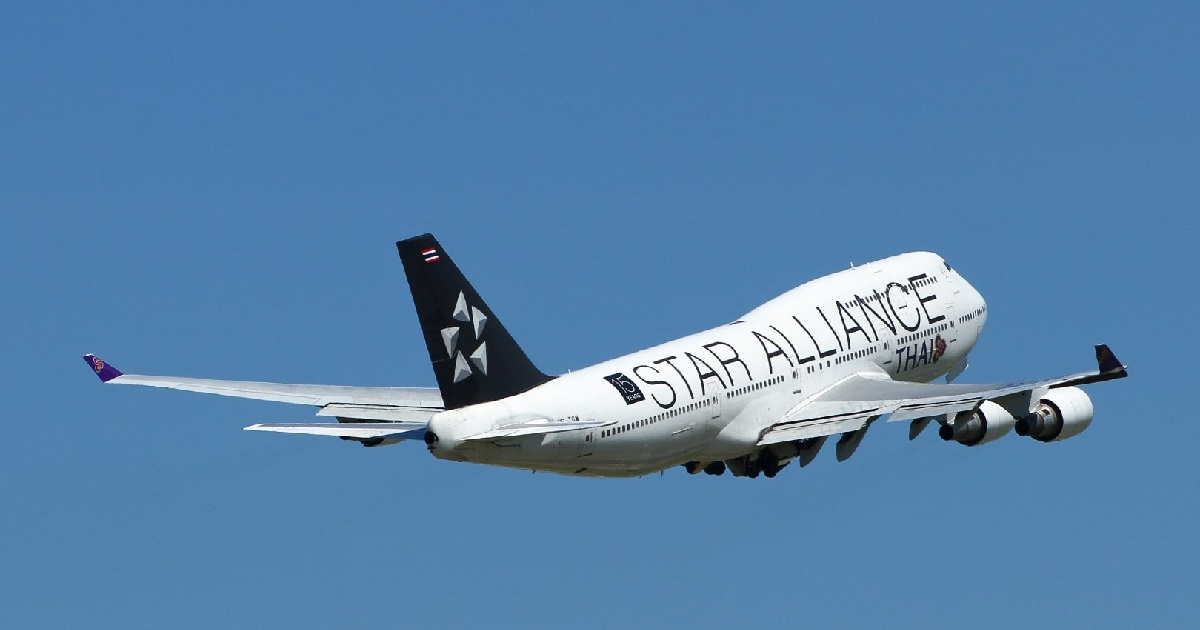
Air Transport
Article | July 15, 2022
With rescue flights crisscrossing the globe and passengers keen to get where they are going as soon as possible, will we see the end of hub to hub travel? Has this current aviation crisis signaled the decline of the current model of aviation we know today? One reporter at Simple Flying gives his opinion.
Read More

Aviation Technology
Article | June 2, 2022
The pandemic has fueled the private aviation segment boom. It has raised many new aviation business bodies.
While the private aviation segment was once reserved for millionaires and A-listers, it now has aircraft that look for more quick and secure gateways.
“We’ve flown more for businesses now than ever, based private jet travel provider PrivateFly.This is the time to use capital to travel safely. We’re seeing sales year-to-date matching with 2020. The sales are outperforming in the private jet market. And since the pandemic hit, we have seen striking changes in clients’ profiles and buying habits."
- Adam Twidell, CEO and founder of UK
Despite the ongoing dimness of the growth of the aviation industry, there has been a fresh influx of customers for private jets.
The pandemic empowered the private aviation companies. As a result, the private jet market has noticed a higher demand of 72% healthy since 2019.
About this, Adam Twidell mentions that private aviation is cautiously hopeful about the future for private jet travel.So, how is the private aviation market growing? How is private jet travel becoming popular? Let’s understand it.
Why are Private Jet Companies Taking Off?
Today, many business travelers are seeking a safer way to fly due to the ongoing effect of the pandemic. As a result, the term ‘safer’ fly has turned to private jet travel.
Its appeal in the present time has been evident. But some reasons that support the answer behind arethe taking off of private aviation companies are as follows:
The Uncertainty of Commercial Aviation
A drop in airline operations throughout the pandemic is one of the reasons. On the other hand, the pandemic facilitated an increase in the number of new business travelers in private aviation.
A Shift in Consumer Behavior
The surging number of first-time flyers have learned to invest in safety. Consumers are beginning to understand that investing in safety is essential today. Consequently, private aviation is not considered a luxury but a common choice as a reliable travel solution.
Control & Flexibility
The evolving new technologies in aviation have now created controllable operations. Such advancement has enabled aviation businesses to recover rapidly. Similarly, the private aviation sector is passing the power to customers to choose scheduled flights. The flexibility of the travel segment has added a value in terms of safety for business travelers.
“For companies looking to fly more frequently, they may get a jet card membership award. It will be a one-off charter and the commitment of jet ownership. You get a consistency of aircraft services like fixed prices and flexible terms."
-Twidell
More Options for Domestic
The domestic aviation sector is recovering compared to the international sector, which is still down by 20% as compared to 2019 as per IATA. All of this is due to the innovation by private aviation companies.
What do these key reasons show us? First, private aviation has constantly been reaching extraordinary heights and serving outstandingly in the new normal.
In this case, some prominent private aviation companies are doing wonders in the aviation industry. They are bringing innovative ideas and reshaping global businesses effectively.
So, who are they? What are those private aviation companies doing? Let’s know further.
The Best of 4 Private Aviation Firms Reshaping Aviation
Business aviation is expected to reach a valuation of more than 2 billion in 2022. This would be more than twice the valuation recorded in 2019, as per the Global Insights Market research study.
So, let’s study some of the most sorted-out private aviation firms. And how they are making innovatory inclusions in the aviation industry.
XOJET
Xojet is known as “Uber for the airways,” being the third-largest North American private aviation company. Xojet partnered with JetSmarter – the world’s largest mobile marketplace for private jets. They aim to bring novel opportunities, ways, and ideas to reshape the industry once again.
Xojet took advantage of digitalization and made the idea of “Uber for the airways” on-demand and straightforward. JetSmarter now serves as the exclusive digital distributor for XOJET’s aircraft, which has provided access to a new technology player—an unparalleled supply of premium jets.
“This shared venture is all about efficiency, which makes us more successful in assisting our clients.” And we will be able to accelerate the process of providing a digital solution for them.”
-Brad Steward, CEO of Xojet
The real opportunity is to put the 11,000 private jets in service in the US. And most of them would fly at an average of 200 hours annually at 30% capacity. As a result, XOJET generated more than $300 million worth of revenue in the second quarter of 2020. So, it is undoubtedly the digitization of private aviation that is concreting the pathway of growth of the industry for the future.
NetJets
NetJets has been serving as one of the oldest and largest private aviation companies. It accumulated a fleet of around 700 jets globally. NetJets’ plans for the first supersonic business jet with its sizeable fresh capital front. It plans to build a supersonic aircraft and is working with innovative and creative partners and private jet manufacturers.
Additionally, NetJets has received a delivery of 25 new private jets so far in 2021. It expects to spend around $2.5 billion to add another hundred jets by the end of 2022.
VeriJet
VeriJet started offering aircraft engines based on cruise missiles and carbon-fiber fuselages. With the help of low emission techniques, the engines are more durable and promote efficient flying. In addition, it has involved artificial intelligence assistance with one pilot. AI helps the jet with landing and other flight operations.
Richard Kane, VeriJet’s chairman, and CEO is counting on “carbon shaming” and promotes go-green emission and fly efficiently.
Clay Lacy Aviation
Clay Lacy Aviation has earned a reputation among other prominent private aviation users for its Waterbury-Oxford (KOXC) operations and maintenance facility. It has actively provided jet charter and looks after maintenance, aircraft management, repair, and renovation capabilities.
“We have offered solutions for clients by providing the first charter to professional aircraft management. From heavy maintenance inspections and cabin upgrades. We offer all at the best value.”
-Clay Lacy Aviation
With this, Clay Lacy experienced an 80% growth over the first 18 months. The growth was recorded by word of mouth spread rapidly across the region based on the East Coast at airports from New Hampshire to Florida.
Apart from this, a data-driven approach to private jet manufacturers and management constantly compares clients’ operating parameters. The process thus ensures that the asset is well-maintained and operates efficiently.
The Demand for Private Aviation is Still Rising
Experts say that the private aviation sector saw an uptick in 2021. In addition, the private aircraft firms witnessed a gradual rise in business from August 2021.
The aviation industry has been tested for a long time when it comes to adapting to diverse requirements. But, in the end, the industry has smartly evolved through challenges over technology and innovation. And the numbers should only proceed to grow now as global businesses recover their positions in late 2021.
“While the business aviation industry continues to experience a thriving market, the longer-term picture will clear step-by-step. Well-known issues such as the pilot shortage, collapse in values of used jets, lack of OEM innovation, rising operational costs have been recognized well, and the industry will cope soon. As a result, the overall environment is prepared for bringing in innovation from every aspect.”
-Peter Maestrales, CEO, Airstream Jets
Frequently Asked Questions
What is the valuation of the private aviation market?
The private jet aircraft’s market size was $24.4 billion globally in 2019. But during the pandemic, the valuation diminished by $20.1 billion. According to recent calculations, for the first quarter of 2021, the private aviation sector grew to a share of $23.6 billion.
What countries have the most private jet operations?
The United States occupies first place in private jet operations. But then, Europe is counted for having a big part of private jet operations.
Why is the private aviation sector becoming more popular?
Private flying has gained popularity because it has fared better than commercial operators. In addition, it has offered convenience, safety, time-saving, flexibility, and costs.
Read More

Business Aviation
Article | January 7, 2022
The UK government has announced that from 11th February, fully vaccinated passengers arriving into the country will no longer have to take COVID-19 tests on arrival. The news follows the removal of pre-departure testing for fully vaccinated UK-bound passengers this month.
The relaxation of testing measures is something the aviation industry has been actively campaigning for, as it removes barriers to travel. Just today, IATA distributed a press release advocating for similar moves to be made by further governments. It cited a study focused on the UK carried out by Oxera and Edge Health which found that because Omicron is now highly prevalent in the UK, “if all travel testing requirements were removed there would be no impact on Omicron case numbers or hospitalizations.”
Read More

Business Aviation
Article | December 28, 2021
The aviation industry is going through a lot of technological and operational transitions. Every day, new technologies in manufacturing, airports, passengers, security measures and more are being introduced or being implemented in the entire aviation ecosystem.
5G technology is one of the most critical technologies that is currently raising concerns. 5G technology is becoming a hot topic of discussion for governments worldwide in inferior ways. Many discussions are going on the shelf of safety of consumers. Similarly, there has been rising concern about the new 5G technology in the aviation industry.
Yes. 5G technology promises to bring some of the best opportunities for airlines. But what will be its impact on airline safety? Before we discuss the 5G rollout, let's highlight its ability to benefit the busiest industry globally.
The Ecosystem of 5G
Multiple technologies play a vital role in 5G technology in terms of coverage, such as EDGE, IoT, SD-WAN, and more. The ecosystem is rapidly expanding, even the industry of suppliers to aviation. It includes device manufacturing, network supply and maintenance, system integration, testing, and more suppliers.
IATA says with regard to the aviation industry, a projected $3.9 billion will be invested in 5G by 2026. Moreover, the projections are taking the entire industry to new altitudes. GSA also forecasts that the growth of 5G will be faster than 4G.
The Impact of 5G on the Different Aviation Sectors
The deployments and implementations of 5G can be profitable for every aviation sector if used appropriately. Speaking of the aviation sectors, the new 5G technology will transform the industry in four crucial areas. They are:
Manufacturing
Airports & Airlines
Travel
Security
Manufacturing
The manufacturing sector has massively developed partnerships with telecom players. The partnerships have led to the launch of 5G initiatives.
Nokia and Lufthansa came forward for inspection of engine parts remotely. With AR visualization and 3D technology, customers can have a visual impact on cabin interiors. 5G technology is also being implemented to trace and track systems in aircraft parts and maintain of operations using transmissions, real-time signal processing, and more.
Airports & Airlines
With 5G technology, Gogo Business Aviation is developing new designs for antennas and modems. The designs will enable the world's first in-flight connectivity (IFC) and 5G air-to-ground (ATG) networks by 2022.
“Towards the end of 2022, we will have sites built, and we will start flight testing,”
-Mike Syverson, senior vice president of engineering at Gogo
Gogo's 5G network will be limited to North America. It will be leveraging the existing 250 towers with its current 3G and 4G IFC networks. The 5G network will use spectrum in the 2.4 GHz band with the help of other booming technologies to provide the airplane-to-ground station link with higher bandwidth.
Travel
Viasat Inc. is known globally for offering broadband digital satellite communications, wireless networking services, and satellite communications products.
Delta Airlines has partnered with Viasat for its next-generation Ka-band satellite in-flight connectivity (IFC) solution. Delta intends to integrate Viasat technology into 757-200 aircraft, A321ceo, and the 737-900ER (new aircraft) to provide customers with safe and secure air travel.
Network Security
The European Aviation Safety Agency (EASA) discloses that an average of 1,000 attacks per month occur on aviation systems. Thus, it is becoming a real threat to airport security, safety, and reputation.
SmartSky Networks LLC is a leading satellite solution. It's also a wireless data and networking services provider globally. It caters to the commercial aviation industry. It offers its innovative air-to-ground inflight Wi-Fi network with 5G technology.
In June 2021, Honeywell and SmartSky introduced their high-speed connectivity. They announced it for their business aviation operators in North America. The partnership agreement boosts seamless connectivity in the commercial aviation market.
Looking at these developments made possible by the new 5G technology in the aviation industry, how has it become one of the industry's obstacles in terms of safety?
Let's highlight the picture here.
Aviation Has Expressed a Serious Concern
The Federal Aviation Administration (FAA) has warned about significant safety concerns in the 5G wireless network setup roadmap. The plan for theusage of C-Band spectrum is the prime reason. 5G network operations can interfere with the radar altimeter performance of aircraft.
"It is engaging with other agencies. So that aviation and 5G cellular technology can safely coexist."
-A Federal Aviation Administration spokeswoman
But with the modifications in the manufacturing processes of aircraft, the industry is encouraging manufacturers. Therefore, the manufacturers could conduct tests for 5G interference and modify aircraft designs.
5G Still Provides Hope for a More Friendly Flying Future
Aviation has a 5G rollout despite having no proof. The rollout is about interfering with safety concerns. Instead, 5G in aviation is burgeoning the importance of safety and security more efficiently. The emphasis on safety and security is now even more powerful. Pilots have been equipped with high communication tools with air control towers, especially in weather or technical challenges.
The new 5G technology is way near to providing superior in-flight bandwidth connectivity while improving operational efficiency. It is going to improve overall operational efficiency. Passengers will be able to take advantage of high-speed internet on planes. Also, business passengers can conduct their business activities while flying and saving precious time and effort.
Frequently Asked Questions
Is the new 5G technology harmful to airplanes?
According to the FAA, aviation operators should be prepared for the possibility that 5G technology could interfere with transmitters. The effects of 5G could cause certain safety malfunctions for airplanes. This could affect flight operations as well.
What are the disadvantages of 5G in aviation?
Aviation is getting benefits from 5G technology. But there is always the other side of the coin. So, the disadvantages could be as follows:
Obstructions in connectivity
High costs of technology
Operational hindrance
Unmatched frequencies
What is the market size of 5G in the aviation industry?
The overall market size of 5G in the aviation market was valued at $698.45 million in 2020. Now, it’s projected to extent $4,682.12 million by 2030.
Read More